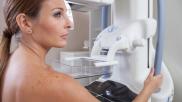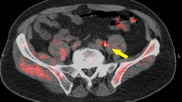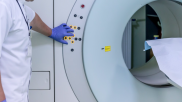| Today's News and Trends | Artificial intelligence (AI) and machine learning often get lumped together, but as the authors of a new Radiology commentary explained, the two terms are far from interchangeable. While machine learning is a specific field of data science that gives computers the ability to “learn” without being programmed with specific rules, AI is a more comprehensive term used to describe computers performing intelligent functions such as problem solving, planning, language processing and, yes, “learning.” Artificial intelligence (AI) and machine learning often get lumped together, but as the authors of a new Radiology commentary explained, the two terms are far from interchangeable. While machine learning is a specific field of data science that gives computers the ability to “learn” without being programmed with specific rules, AI is a more comprehensive term used to describe computers performing intelligent functions such as problem solving, planning, language processing and, yes, “learning.” | | |
| Women with dense breasts see higher cancer rates than their non-dense breast counterparts, suggesting additional screening might be beneficial, a nationwide study out of Norway has found. Women with dense breasts see higher cancer rates than their non-dense breast counterparts, suggesting additional screening might be beneficial, a nationwide study out of Norway has found. | | |
| After a year of soul searching and strategic review, GE announced its move today to spin off GE Healthcare into a standalone company over the next 12 to 18 months. The goal, the company said, is a leaner corporate structure with substantial reductions in debt. After a year of soul searching and strategic review, GE announced its move today to spin off GE Healthcare into a standalone company over the next 12 to 18 months. The goal, the company said, is a leaner corporate structure with substantial reductions in debt. | | |
| 18F-Fluciclovine PET/CT can help detect previously undetected lesions in patients with biochemical recurrence of prostate cancer, according to a report presented at the Society of Nuclear Medicine and Molecular Imaging (SNMMI) 2018 Annual Meeting. 18F-Fluciclovine PET/CT can help detect previously undetected lesions in patients with biochemical recurrence of prostate cancer, according to a report presented at the Society of Nuclear Medicine and Molecular Imaging (SNMMI) 2018 Annual Meeting. | | |
| High-strength MRI may release mercury, a known toxin, from amalgam fillings in teeth, according to a new study published in Radiology. High-strength MRI may release mercury, a known toxin, from amalgam fillings in teeth, according to a new study published in Radiology. | | |
| Most American nurses put their patients’ health and safety above their own, potentially impacting patient care, one Pennsylvania nurse wrote in the Journal of Radiology Nursing this month. Most American nurses put their patients’ health and safety above their own, potentially impacting patient care, one Pennsylvania nurse wrote in the Journal of Radiology Nursing this month. | | |
| San Francisco-based tech company Bay Labs this week announced the success of its deep learning software, EchoMD AutoEF, in reducing variability in cardiovascular imaging. San Francisco-based tech company Bay Labs this week announced the success of its deep learning software, EchoMD AutoEF, in reducing variability in cardiovascular imaging. | | |
| Norman E. Bolus, MSPH, MPH, CNMT, was elected 2018-2019 president of the Society of Nuclear Medicine and Molecular Imaging Technologist Section (SNMMI-TS) at the Society of Nuclear Medicine and Molecular Imaging (SNMMI) 2018 Annual Meeting in Philadelphia. Norman E. Bolus, MSPH, MPH, CNMT, was elected 2018-2019 president of the Society of Nuclear Medicine and Molecular Imaging Technologist Section (SNMMI-TS) at the Society of Nuclear Medicine and Molecular Imaging (SNMMI) 2018 Annual Meeting in Philadelphia. | | |
| Around $2 million has been funneled into the University of Minnesota’s latest healthcare project: a third MRI machine that’s expected to cut waiting times for patients who typically wait up to three weeks for a scan. Around $2 million has been funneled into the University of Minnesota’s latest healthcare project: a third MRI machine that’s expected to cut waiting times for patients who typically wait up to three weeks for a scan. | | |
| |
|
| ![]() | |
|













